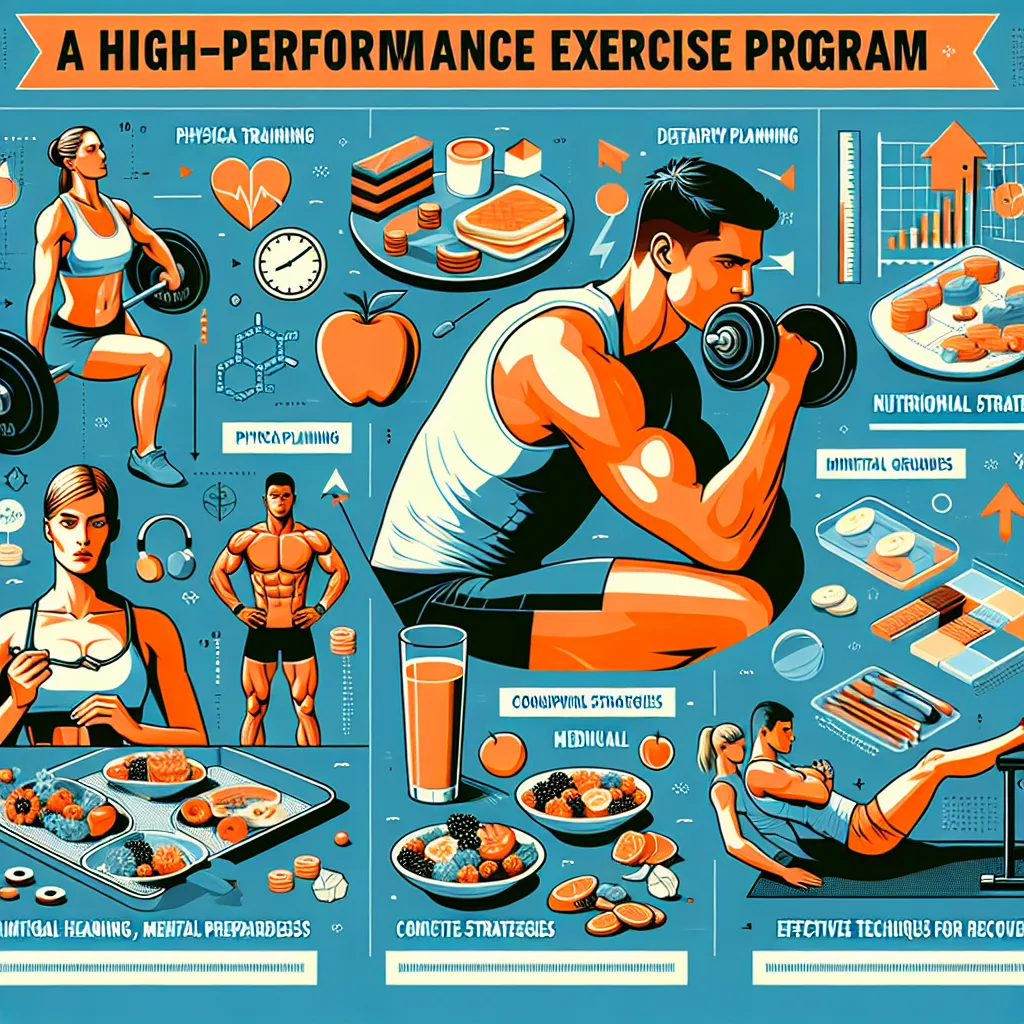“High-performance program” is a crucial term in the world of sports and athletics. Let’s break it down:
Definition: A high-performance program is a structured and comprehensive approach designed to optimize athletic performance, typically encompassing training, nutrition, mental preparation, and recovery strategies.
Part of Speech: Noun phrase
Pronunciation: /haɪ pərˈfɔːrməns ˈprəʊɡræm/
This term is particularly relevant in the field of sports management and elite athlete development. Understanding its usage and context is essential for IELTS candidates, especially those interested in sports-related topics.

Context and Usage
Examples in Context
-
The national swimming team implemented a new high-performance program to prepare for the Olympics.
Analysis: This sentence demonstrates the use of the term in the context of elite sports preparation, emphasizing its role in achieving top-level performance. -
Coaches and athletes alike praised the effectiveness of the high-performance program in improving overall team results.
Analysis: Here, the phrase is used to highlight the positive outcomes of such programs, showing their impact on both individual and team performance. -
The sports academy’s high-performance program includes state-of-the-art facilities and personalized training regimens.
Analysis: This example illustrates the comprehensive nature of high-performance programs, encompassing both physical resources and tailored strategies. -
Aspiring professional athletes are eager to join high-performance programs to fast-track their development.
Analysis: The sentence shows the desirability of these programs among ambitious athletes, emphasizing their role in career advancement. -
The government has increased funding for high-performance programs across various sports to boost national competitiveness.
Analysis: This usage demonstrates the broader impact of such programs, extending to national sports policies and funding decisions.
Common Contexts
High-performance programs are frequently discussed in:
- Elite sports training
- Olympic preparation
- Professional sports academies
- Sports science research
- Athletic career development
Frequency in IELTS
In IELTS exams, “high-performance program” may appear in:
- Reading passages about sports or athlete development (moderate frequency)
- Listening sections discussing sports training or management (low to moderate frequency)
- Writing Task 2 essays on sports, health, or performance optimization (potential topic)
- Speaking Part 3 discussions on sports and athletics (possible discussion point)
Vocabulary Analysis
Word Structure
- High: Adjective indicating superior level or quality
- Performance: Noun referring to the execution of an action or function
- Program: Noun describing a planned series of activities or events
Synonyms and Antonyms
Synonyms:
-
Elite training program /ɪˈliːt ˈtreɪnɪŋ ˈprəʊɡræm/
Part of Speech: Noun phrase
Definition: A specialized training regimen designed for top-tier athletes. -
Peak performance system /piːk pərˈfɔːrməns ˈsɪstəm/
Part of Speech: Noun phrase
Definition: A comprehensive approach to achieving optimal athletic performance. -
Advanced athletic development plan /ædˈvɑːnst æθˈletɪk dɪˈveləpmənt plæn/
Part of Speech: Noun phrase
Definition: A sophisticated strategy for enhancing athletic abilities at the highest level.
Antonyms:
-
Recreational sports program /ˌrekrɪˈeɪʃənl spɔːts ˈprəʊɡræm/
Part of Speech: Noun phrase
Definition: A casual, non-competitive approach to sports and physical activities. -
Basic fitness routine /ˈbeɪsɪk ˈfɪtnəs ruːˈtiːn/
Part of Speech: Noun phrase
Definition: A simple, general exercise plan for maintaining basic health and fitness.
Memory Techniques
Mind Mapping
Create a mind map with “High-Performance Program” at the center, branching out to key components:
- Training (sub-branches: strength, endurance, skills)
- Nutrition (sub-branches: diet plans, supplements, hydration)
- Mental Preparation (sub-branches: psychology, goal-setting, visualization)
- Recovery (sub-branches: rest, physiotherapy, massage)
Storytelling Technique
Imagine an athlete named Alex joining a high-performance program. Visualize Alex’s journey:
- Day 1: Intense training sessions
- Week 2: Customized nutrition plan
- Month 1: Mental coaching sessions
- Season End: Achieving personal best performance
This narrative helps associate the term with a concrete, memorable progression.
Practice Exercises
Application in IELTS Writing
Task: Write a paragraph discussing the benefits of high-performance programs in sports. Use at least three related vocabulary items.
Sample answer:
“High-performance programs have revolutionized the world of elite sports. These comprehensive systems integrate advanced training techniques, tailored nutrition plans, and cutting-edge mental preparation strategies. Athletes enrolled in such programs often experience significant improvements in their peak performance, leading to enhanced competitive results. Moreover, the holistic approach of high-performance programs contributes to better load management and injury prevention, ensuring sustainable athletic careers.”
IELTS Speaking Practice
Imagine you’re asked this question in IELTS Speaking Part 3:
“How do you think high-performance programs in sports affect young athletes?”
Possible answer:
“High-performance programs can have a profound impact on young athletes. On the positive side, they offer exceptional training opportunities and access to top-notch facilities, which can significantly accelerate skill development. These programs often include comprehensive support systems, covering not just physical training but also mental preparation and nutritional guidance. This holistic approach can be incredibly beneficial for young athletes’ overall development.
However, there are potential downsides to consider. The intense nature of these programs might put excessive pressure on young athletes, potentially leading to burnout or fatigue management issues. There’s also a risk of overemphasis on early specialization, which could limit a young person’s exposure to a variety of sports and experiences.
Ultimately, while high-performance programs can be a fantastic springboard for talented young athletes, it’s crucial to balance the pursuit of excellence with the need for a well-rounded development and a healthy childhood.”
Conclusion
Understanding and effectively using terms like “high-performance program” can significantly enhance your IELTS performance, particularly in sports-related topics. This phrase encapsulates complex ideas about athletic training and development, making it valuable for discussions on sports, performance optimization, and even broader topics like organizational efficiency.
Remember to practice using this term in various contexts, whether you’re writing essays, participating in speaking exercises, or analyzing reading passages. The more you engage with such specialized vocabulary, the more natural and sophisticated your language use will become.
We encourage you to share your experiences with learning and using this term in the comments below. How might you incorporate “high-performance program” into your IELTS preparation? Do you have any questions about its usage or related vocabulary? Your insights and queries can help create a dynamic learning environment for all IELTS aspirants.